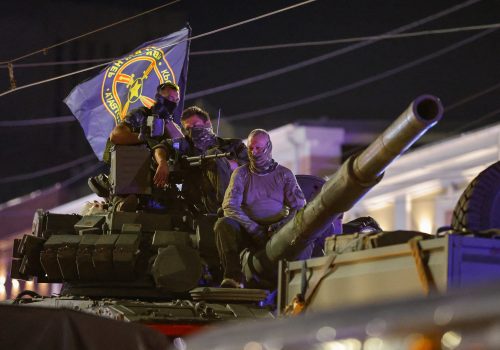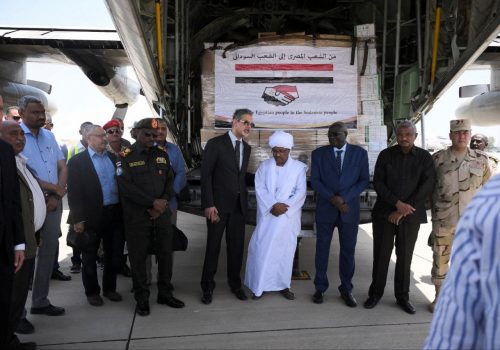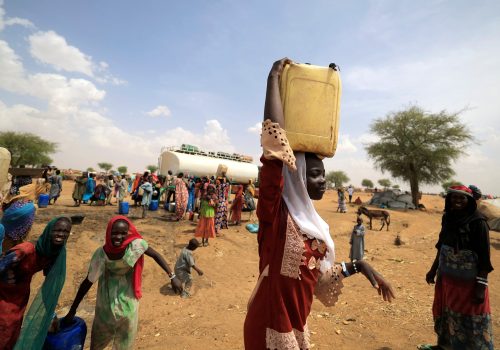Mercenary bloodline: The war in Sudan
In Season 1, Episode 5 of the Guns for Hire podcast, host Alia Brahimi is joined by two guests. She speaks with Cameron Hudson, the former US government expert on Sudan, about the mercenary pedigree of one of the two main belligerent parties, the Rapid Support Forces, and the determinative impact this has had on the current conflict in Sudan. By fighting as mercenaries in Libya, and especially Yemen, the RSF secured a cash windfall that let it recruit in numbers to rival the size of the national army, it forged regional relationships that are now central to its resupply, and it has committed crimes and abuses in the conduct of the war which represent a detached mercenary mindset.
Alia also chats with Professor Munzoul Assal of the University of Khartoum about the danger of two parallel governments emerging in Sudan along the lines of the bifurcation in Libya; the presence of RSF fighters at the Sudanese border with the Central African Republic where the Wagner Group is deeply entrenched; and the clear and alarming possibilities of a regional conflagration.
“The origin story of the wealth is really sending the RSF out into the region as a mercenary force… Hemedti has now been able to return back to his fighting roots but doing it with a war chest that has allowed him to recruit and to resupply in such a way that he is now a rival to the authority of the country.”
Find the Guns For Hire podcast on the app of your choice
About the podcast
The Guns for Hire podcast is a production of the Atlantic Council’s North Africa Initiative. Taking Libya as its starting point, it explores the causes and implications of the growing use of mercenaries in armed conflict.
The podcast features guests from many walks of life, from ethicists and historians to former mercenary fighters. It seeks to understand what the normalisation of contract warfare tells us about the world as we currently find it, but also about the future of the international system and about what war could look like in the coming decades.
Further reading

Through our Rafik Hariri Center for the Middle East, the Atlantic Council works with allies and partners in Europe and the wider Middle East to protect US interests, build peace and security, and unlock the human potential of the region.
Image: FILE PHOTO: A Sudanese national flag is attached to a machine gun of Paramilitary Rapid Support Forces (RSF) soldiers as they wait for the arrival of Lieutenant General Mohamed Hamdan Dagalo, deputy head of the military council and head of RSF, before a meeting in Aprag village 60, kilometers away from Khartoum, Sudan, June 22, 2019. REUTERS/Umit Bektas/File Photo








